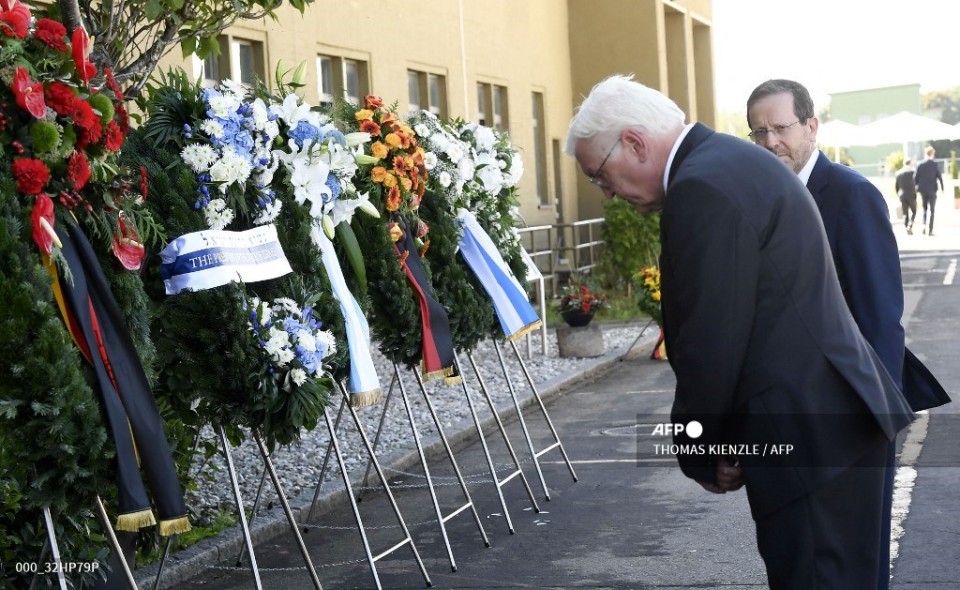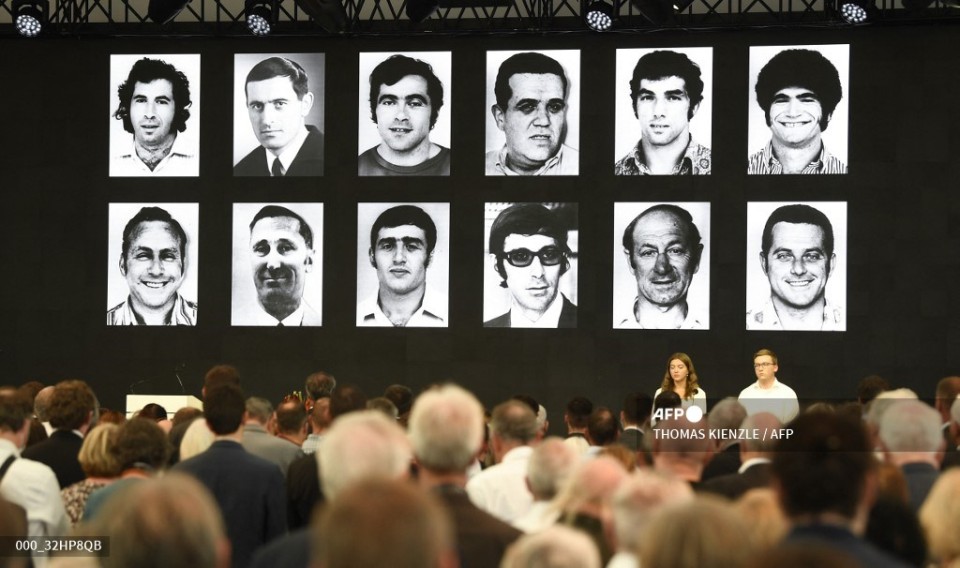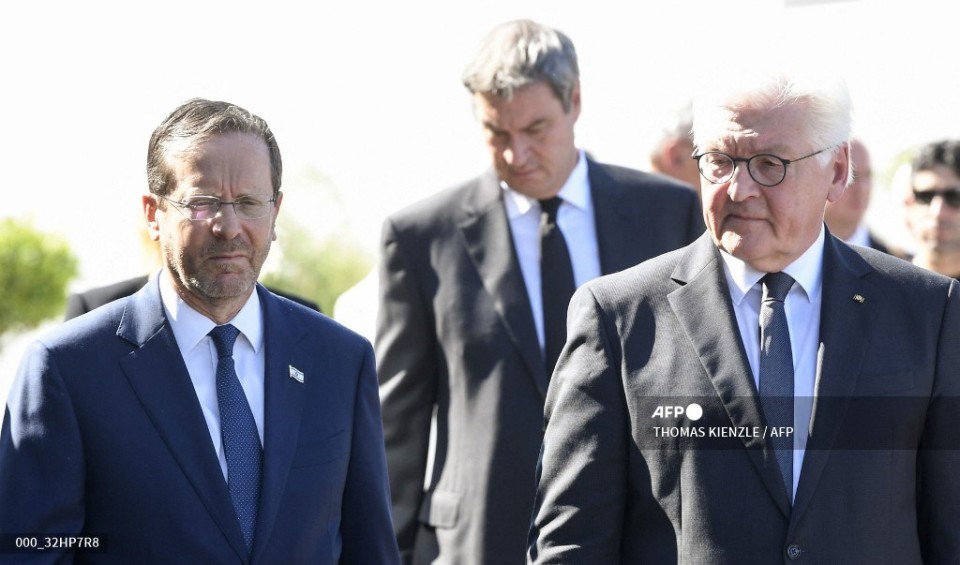
Munich, Germany (AFP)
by Ralf ISERMANN with Hui Min NEO in Berlin
Germany on Monday sought “forgiveness” from families of victims in the 1972 Munich Olympics attack, admitting responsibility for a litany of failings that led to the deaths of 11 Israelis.
The apology by President Frank-Walter Steinmeier on behalf of Germany 50 years on came after a bitter and long fight by bereaved relatives for appropriate compensation and for Berlin to own up to mistakes made that led to the massacre.
“We cannot make up for what has happened, not even for what you have experienced and suffered in terms of defensiveness, ignorance and injustice. I am ashamed of that,” said Steinmeier at a solemn ceremony at the Fuerstenfeldbruck airbase where the attack reached its tragic climax.
“As head of state of this country and in the name of the Federal Republic of Germany, I ask you for forgiveness for the lack of protection of the Israeli athletes at the time of the Olympic Games in Munich, and for the lack of clarification afterwards, and for the fact that what happened happened.”
Israel’s President Isaac Herzog hailed Steinmeier for what he described as a “brave and historic speech”.
“It represents, half a century later, an important step of morality and justice for the victims, for the families, and for history itself,” said the president, who is in Germany for a state visit.

– ‘Hardheartedness’ –
On September 5, 1972, eight gunmen of the Palestinian militant group Black September stormed into the Israeli team’s flat at the Olympic village, shooting dead two and taking nine Israelis hostage.
West German police responded with a bungled rescue operation in which all nine hostages were killed, along with five of the eight hostage-takers and a police officer.
Despite the devastation, the International Olympic Committee announced on the morning of September 6 that the Games would go on.
Steinmeier summarised the entire episode as a triple failing: in the preparation of the Games and its security concept; the events of September 5 and 6; and the third failure that “began the day after the assassinations — the silence, the suppression and the forgetting”.
For decades, there was disregard for the victims’ suffering, he said, calling it “years of hardheartedness”.
The Games were meant to showcase a new Germany 27 years after the Holocaust, and to be a marked difference from Hitler’s 1936 propaganda showcase. But instead, they opened a deep rift with Israel.
In 2012, Israel released 45 official documents on the killings, including specially declassified material, which lambasted the performance of the German security services.
Included in the reports is an official account from the former Israeli intelligence head Zvi Zamir who said the German police “didn’t make even a minimal effort to save human lives”.

– ‘Inhuman and incomprehensible’ –
Bereaved relatives have over the years battled to obtain an official apology from Germany, access to official documents and appropriate compensation beyond an initial 4.5 million euros.
As recently as just two weeks ago, relatives of the victims said they were offered 10 million euros — including the sum that had already been given.
Herzog said grieving relatives simply “hit a wall” whenever they tried to raise the issue with Germany or even with the International Olympic Committee.
“I think there was tragic suppression here,” he said on Sunday, noting the slew of failings that were “inhuman and incomprehensible” such as “the fact that the hostages were being led to slaughter and the Games went on.”
After families threatened to boycott Monday’s ceremonies, a deal was finally agreed last Wednesday for Berlin to provide 28 million euros ($28 million) in compensation.
Steinmeier had admitted that it was “shameful” that a deal was so late in coming.
Ankie Spitzer, whose husband Andre Spitzer was killed in the hostage-taking only a year and three months after they married, said that she managed to make a life for herself over the decades, but “could not find peace because justice hadn’t been done”.
“You would think that mighty Germany would have done everything in its power not to add Jewish blood to its already bloody soil,” she told the ceremony.
“Everybody is asking now if I finally feel closure. They don’t understand that there will never be closure. The hole in my heart will never ever heal.”
hmn/sea/yad
© Agence France-Presse







